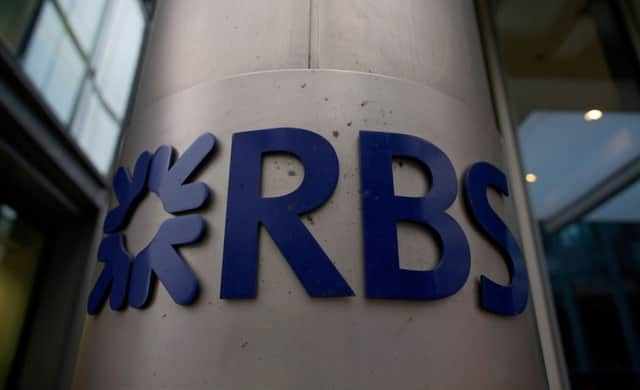Scottish independence: Bank exodus ‘unlikely’


BlackRock said independence “would bring major uncertainties, costs and risks - mostly for Scotland, but also for the remaining UK”, in a report entitled Investment and Independence.
A currency union looks “unfeasible” leaving Scotland with the choice of joining the euro, which “does not appear to be a near term option”, or launching its own currency pegged to sterling or its other main trading partners and to the price of oil, it said.
Advertisement
Hide AdAdvertisement
Hide AdThe report is said to be “deliberately apolitical” but gives BlackRock’s views on some of the disputed claims about independence.
It states: “Kilt-edged securities would sell at higher yields. Scotland would have to pay more to borrow than the UK and accept shorter maturities.
“The country’s likely high debt, fiscal deficit, weak economic growth, lack of institutional frameworks and low foreign exchange reserves suggest a higher-than-normal debut sovereign yield spread. This would add to Scotland’s fiscal stress.
“Oil and gas are critical to Scotland’s finances. North Sea revenues are volatile as they depend on energy prices, production volumes, costs and tax incentives.
“Banks and insurers would face pressure to move headquarters to a stronger fiscal state with a more certain regulatory backdrop. Yet a wholesale exodus of staff and operations would be unlikely, given Scotland’s cost advantage over London and other locations.
“Utilities doing business in Scotland would likely see financial returns fall as the country would be torn between ambitious targets for renewable power and popular pressure to keep electricity rates low.
“Independence would raise regulatory costs and uncertainties for companies. Pension sponsors and trustees would have to change scheme designs and operations.
“Fears an independent Scotland would become a bastion of anti-business sentiment are unfounded, in our view. The SG would likely go out of its way to accommodate the oil industry in particular. Why risk killing the Scottish grouse that lays the golden egg?”
Advertisement
Hide AdAdvertisement
Hide AdA Scottish Government spokesman said: “The Fiscal Commission Working Group, which comprises of economic experts and two Nobel Laureates, concluded that it is in the interests of both Scotland and the UK to continue to retain sterling in a formal monetary union.
“A currency union is in the UK’s economic interests given the strong trade and financial links between Scotland and the UK. For example, the UK exports more to Scotland than to Brazil, South Africa, Russia, India, China and Japan put together.”
Better Together campaign director Blair McDougall said: “The report by BlackRock is a serious piece of work from experts in managing money. The SNP cannot dismiss this as they have every other warning from experts, employers and economists.
“Being part of the UK means lower costs, more jobs and better opportunities for future generations. Losing the pound means losing the strength, stability and security of the UK economy.”
mfl
Yes Scotland chief executive Blair Jenkins said: “Last month a report from credit agency Standard and Poor’s highlighted the attractiveness of an independent Scotland as a place to do business - and concluded that Scotland’s wealth levels are comparable to those of AAA-listed nations, and that as an independent country, even without North Sea oil, Scotland will qualify for S&P’s highest economic assessment.
“Scotland is already part of the European Union and Scots have been EU citizens for more than 40 years - and experts such as senior EU negotiator Graeme Avery have made it clear that Scotland can negotiate its position as a member state after a Yes vote and prior to becoming independent in March 2016.”
SEE ALSO